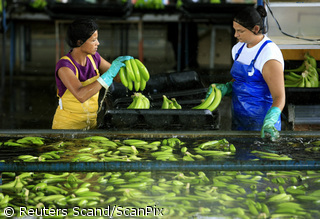The legal issue is the degree to which law limits company_s discretion in licensing its intellectual property.
Published:
14 February 1999 y., Sunday
On Feb. 23, the curtain goes up on the other big high-tech trial in Washington, D.C.--the Federal Trade Commission_s case against Intel Corp. Compared with the Microsoft Corp. trial, this dispute will seem less dramatic. On its face the case addresses concerns about Intel_s contracting policies; the real legal issue, however, is the degree to which antitrust law limits a tech company_s discretion in licensing its intellectual property. The speed with which new technology comes to market depends upon the industry_s ability to sidestep intellectual property conflicts using licensing and cross-licensing agreements; thus, any limits the FTC imposes on the right to negotiate and enter into these agreements could affect the industry significantly. Intellectual property (patents, copyrights and trademarks) is the only truly bankable product the high-tech industry produces. In many instances, its value can be realized only when it is combined through licenses and cross-licenses with intellectual property owned by others. Often thousands of technology patents, copyrights and trademarks held by hundreds of companies are licensed and cross-licensed to produce a single product. Given the thicket of intellectual property rights in this industry, even giants such as Intel, Microsoft and Compaq Computer Corp. cannot deploy new technologies without first licensing intellectual property. Intel, like many high-tech companies, regularly conditions the granting of a license to its technology on the licensee_s willingness to grant Intel a reciprocal cross-license to use the licensees technology. This has created a highly efficient, barter-based market that has helped clear away the potential infringement claims that might delay the deployment of new technology. The FTC became involved when one of the participants refused to barter. Workstation manufacturer Intergraph Corp. (Huntsville, Ala.), which had acquired the Clipper RISC (reduced instruction set computing) processor from National Semiconductor Corp., refused to cross-license certain Clipper-related technologies to Intel -even though Intergraph had licensed Intel_s technology. Intergraph eventually sued Intel for patent infringement, and Intel revoked Intergraph_s license. Other Intel dustups involving Compaq and Digital Equipment Corp. apparently prompted the FTC to act.
Šaltinis:
Internet
Copying, publishing, announcing any information from the News.lt portal without written permission of News.lt editorial office is prohibited.
The most popular articles
 The EBRD is increasing the availability of financing to the real economy in Hungary, with a €50 million credit line to CIB Bank, including at least €10 million equivalent denominated in Hungarian Forint.
more »
The EBRD is increasing the availability of financing to the real economy in Hungary, with a €50 million credit line to CIB Bank, including at least €10 million equivalent denominated in Hungarian Forint.
more »
 At the end of March 2010, AB Bank SNORAS deposit portfolio exceeded LTL 5 billion, of which over LTL 3 billion are household deposits.
more »
At the end of March 2010, AB Bank SNORAS deposit portfolio exceeded LTL 5 billion, of which over LTL 3 billion are household deposits.
more »
 In affirmation of Vietnam’s remarkable progress towards Middle Income Country status, the World Bank Board of Directors today approved a second loan for Vietnam from the International Bank of Reconstruction and Development (IBRD).
more »
In affirmation of Vietnam’s remarkable progress towards Middle Income Country status, the World Bank Board of Directors today approved a second loan for Vietnam from the International Bank of Reconstruction and Development (IBRD).
more »
 The World Bank today approved a EUR26 million loan to the Republic of Croatia aimed at further improving the efficiency of Croatia’s justice system − a necessary process in Croatia’s path towards successful European Union accession.
more »
The World Bank today approved a EUR26 million loan to the Republic of Croatia aimed at further improving the efficiency of Croatia’s justice system − a necessary process in Croatia’s path towards successful European Union accession.
more »
 The ACP-EU Joint Parliamentary Assembly asked the European Commission to help EU and ACP banana producers adapt to the new EU-Latin America trade agreement, which is expected to put an end to fifteen years of “banana wars” between the two continents, but has raised concerns for the livelihood of some regions' producers.
more »
The ACP-EU Joint Parliamentary Assembly asked the European Commission to help EU and ACP banana producers adapt to the new EU-Latin America trade agreement, which is expected to put an end to fifteen years of “banana wars” between the two continents, but has raised concerns for the livelihood of some regions' producers.
more »
 As seventeen of Africa’s 53 nations celebrate 50 years of independence in 2010, Africa’s “golden moment has come” and investors around the globe must look to the continent often painted only as risk-prone if they are to capitalize on business opportunities.
more »
As seventeen of Africa’s 53 nations celebrate 50 years of independence in 2010, Africa’s “golden moment has come” and investors around the globe must look to the continent often painted only as risk-prone if they are to capitalize on business opportunities.
more »
 During the ordinary general shareholders’ meeting of AB Bank SNORAS, which took place on 31st March 2010, the bank’s profit distribution was approved.
more »
During the ordinary general shareholders’ meeting of AB Bank SNORAS, which took place on 31st March 2010, the bank’s profit distribution was approved.
more »
 The EU is the world's largest economy, with enough international clout to return to "real capitalism" rather than resign itself to an alien "financial capitalism", concluded MEPs and experts at a public hearing held on Thursday by Parliament's special committee on the crisis.
more »
The EU is the world's largest economy, with enough international clout to return to "real capitalism" rather than resign itself to an alien "financial capitalism", concluded MEPs and experts at a public hearing held on Thursday by Parliament's special committee on the crisis.
more »
 Food quality and labelling are likely to be key issues when the Common Agriculture Policy is overhauled in the coming years.
more »
Food quality and labelling are likely to be key issues when the Common Agriculture Policy is overhauled in the coming years.
more »
 The European Investment Bank (EIB) is lending EUR 250 million to Russian company Enel OGK-5 to finance the upgrading of a gas fired power plant located in Nevinnomyssk, South Russia.
more »
The European Investment Bank (EIB) is lending EUR 250 million to Russian company Enel OGK-5 to finance the upgrading of a gas fired power plant located in Nevinnomyssk, South Russia.
more »